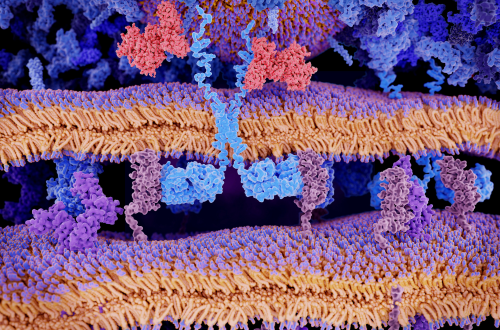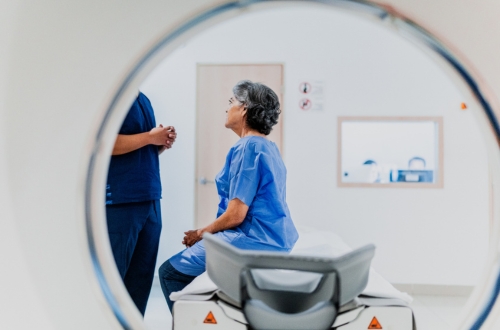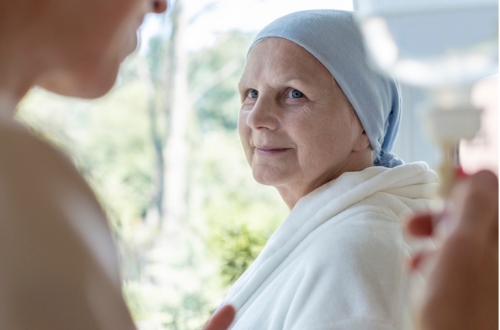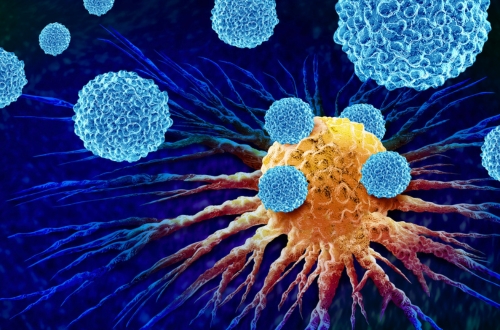The Role of Immunotherapy CROs in Blood Cancer Treatment
Blood cancer, including leukemia, lymphoma, and myeloma, accounts for nearly 10% of all diagnosed cases of cancer in the United States and affects 1.24 million people globally each year. To date, over 100 types of blood cancer have now been recognized and treatment approaches can range from active surveillance to emerging cancer treatments, such as immunotherapy. These cancers no doubt have an alarming prevalence, particularly leukemia, which is the most common cancer in children and teens, but advancements in treatments and cancer trials are providing hope to patients and their families worldwide. Between 2024 and 2028 alone, the global cancer biologics market is expected to grow by an impressive US$51 billion, primarily driven by innovations in technology and increased partnerships with immunotherapy CROs (contract research organizations) and other oncology CROs in blood cancer clinical research.
In honor of Blood Cancer Awareness Month this upcoming September, TFS’s hemato-oncology CRO is proud to advocate for increasing awareness and understanding of these diseases. As several organizations join to promote awareness campaigns and support oncology trials, this article highlights how immunotherapy CROs like TFS are helping accelerate new treatment approvals in the fight against blood cancer. Continue reading to learn more!
Oncology CROs Help Drive Advancements in Immunotherapy for Blood Cancer
Unlike standard chemotherapy or cancer surgery, immunotherapy offers a more tailored approach by activating the immune system to kill tumor cells while sparing healthy ones. Considering the role of abnormal surveillance by immune cells in blood cancer, oncology and hematology clinical research is exploring several ways to harness the immune system in novel cancer treatments. As a result, several immunotherapies are currently being evaluated in oncology trials, including immune checkpoint inhibitors, chimeric antigen receptor T cells (CAR T cells), stem cell transplantation, antibody-drug conjugates, tumor vaccines, and many more.
As a whole, this class of cancer therapy has consistently shown promise in inducing long-term remission in refractory or relapsed patients, marking a significant shift in the therapeutic landscape of blood cancer. In addition to the valuable work carried out by oncology sponsors and clinicians, immunotherapy CROs have also become a backbone of support in blood cancer trials, from the initial design of the study through to the final analysis of results. For example, stem cell transplantation started out as a risky experimental procedure but is now recognized as a standard treatment for certain types of blood cancers as a result of collaborative efforts between key stakeholders in oncology trials.
Today, the field of immunotherapy has grown significantly, providing patients with blood cancer with more innovative treatment options with time.
- Immune checkpoint inhibitors block checkpoint proteins that normally control immune regulation, releasing a natural brake on the immune system to promote a stronger anti-tumor response.
- T-cell transfer therapy (or adoptive cell therapy) takes immune cells from a patient’s tumor, grows them to large quantities in a lab, and injects them back into the body to better fight their cancer cells.
- Monoclonal antibodies are immune system proteins created in the lab that are designed to bind to specific targets on cancer cells to make them more visible to the immune system.
- Treatment vaccines work against cancer by boosting the immune system’s response to cancer cells.
Although not as widely relied on as chemotherapy, radiation therapy, or cancer surgery, several immunotherapies are now approved by the US Food and Drug Administration (FDA), in part due to the contributions of oncology CROs like TFS in blood cancer clinical research.
Interested in learning more about how treatments for malignant blood cancer have progressed in the last 170 years? Visit this infographic from TFS Oncology & Hematology CRO!
Managing Immunotherapy Cancer Trials with Oncology CROs
Sponsors will typically partner with an oncology CRO to outsource the management of the complex logistics associated with cancer trials, from patient recruitment to data management and analysis. Not only does their expertise ensure blood cancer clinical research is conducted according to stringent regulatory guidelines, oncology CROs allow for more efficient resource allocation. While the CRO manages clinical trials from a logistical perspective, the sponsor is free to better focus on scientific innovation, potentially accelerating the development of effective treatments for blood cancers. For example, patient recruitment is a critical phase of all clinical trials and one of the most common pitfalls to experiencing delays during clinical development. Immunotherapy CROs come equipped with recruitment experts, often with existing networks of quality research sites and pools of patients with specific blood cancers, to streamline the enrolment process. Their support involves identifying potential participants, managing consenting processes, and ensuring that patient data is handled with the highest level of confidentiality and integrity.
Additionally, oncology CROs like TFS that have a strong research presence in North America and beyond are especially valuable with multicenter cancer trials, helping set up trial sites, training site personnel, and coordinating between multiple stakeholders to streamline clinical operations. More importantly, CROs are crucial for helping sponsors and sites keep up with expected timelines for oncology trials, considering how costly even one day of delays can be for pharmaceutical companies. To minimize these obstacles that could otherwise impact the success of clinical trials, these organizations are known for employing strategic project management techniques and leveraging their specialized expertise to ensure blood cancer trials proceed as planned.
From running over 300 oncology and hematology studies, learn more here about how TFS is addressing the challenges of modern cancer trials.
Oncology CRO Partnerships Strengthen Compliance in Blood Cancer Clinical Trials
One of the critical functions of partnering with an oncology CRO for blood cancer clinical trials is to ensure compliance with strict regulatory standards. This is especially important for oncology trials evaluating immunotherapies because early-phase clinical trials and newer forms of cancer treatment tend to require more rigorous scrutiny. Regulatory bodies such as the US FDA and European Medicines Agency (EMA) have stringent requirements for cancer trials, and immunotherapy or oncology CROs ensure that these standards are met through meticulous documentation, regular audits, and continuous monitoring. They also help maintain the highest quality assurance by implementing compliant processes that ensure all resulting clinical trial data is accurate, reproducible, and reliable. Notably, with blood cancer clinical trials becoming increasingly globalized, global oncology CROs like TFS that have a presence in multiple countries worldwide become invaluable for guiding sponsors through each region’s local laws while maintaining international standards.
From driving early-phase success to pioneering adoptive cell therapy during COVID-19, discover how TFS Oncology & Hematology is navigating the evolving landscape of immunotherapy in cancer on the TFS Intellect Hub.
How Oncology CROs are Addressing Challenges in Immunotherapy Clinical Research
Despite the promise of immunotherapy, there are several challenges that need to be addressed. Namely, one of the significant hurdles in immunotherapy is managing the occurrence of immune-related adverse events (irAEs) that result from overstimulating the immune system. Considered an autoimmune response, irAEs can affect any organ in the body after immunotherapy administration, resulting in problems like underactive pituitary glands, inflamed bowel segments and hepatitis. While traditional chemotherapies present serious issues with cytotoxicity, immunotherapies also now present a new class of side effects for clinicians to detect and manage promptly. Oncology CROs play a key role in the management of irAEs and other side effects of immunotherapy by offering hematology-specialized pharmacovigilance teams to carefully monitor these events in oncology trials. No matter what phase of the cancer trial, CROs in blood cancer clinical research contribute to the delicate balancing act of delivering effective treatments and maintaining patient safety by collecting and analyzing large volumes of adverse event data. They also work with research sites and sponsors to report any major findings to regulatory authorities, helping refine immunotherapy treatment guidelines and improve patient outcomes in a proactive approach for blood cancers.
Interested in learning about the top 10 oncology CROs changing the landscape of cancer research? Visit this article here!
The Future of Therapeutic Innovations in Immunotherapy for Blood Cancer
Despite the challenges, the future of immunotherapy for blood cancers looks promising, with ongoing research and clinical trials continually expanding our understanding and capabilities of the immune system’s role in oncology. The therapeutic landscape of blood cancer clinical research is continually shifting with the help of immunotherapy CROs in promoting greater awareness and sense of community to support patients with these devastating diseases. In 2023 alone, the TFS team rallied to raise and donate over $2000 to the Leukemia and Lymphoma Society under their inaugural “TFS Together” cancer awareness campaign.
With the support of such oncology CRO partnerships and campaigns, cancer trials for diseases like leukemia or lymphoma are seeing several emerging innovations. These include adopting more adaptive study designs, which allow oncology trials to be more flexible and efficient, and embracing personalized medicine therapeutics to tailor treatments to individual genetic profiles of patients. Furthermore, this field of clinical research is witnessing advancements in the integration of artificial intelligence (AI) and machine learning (ML) into these clinical trials. By leveraging these tools, biotech and oncology CROs are improving their capacity for optimizing clinical trial designs, improving patient recruitment, and analyzing data more effectively.
Conclusion
In conclusion, immunotherapy CROs in blood cancer treatment have played a pivotal role in driving advancements and accelerating new treatment approvals. Through innovative clinical research and collaborative efforts, these organizations are helping to bring hope to patients and their families worldwide. As we approach Blood Cancer Awareness Month in September 2024, join TFS as we continue to raise awareness and support ongoing oncology trials. With community initiatives like “TFS Together” and AI-based technological innovations emerging in blood cancer trials, immunotherapy CROs are driving promising momentum in blood cancer clinical research to deliver more effective and personalized therapies for patients worldwide.
Why TFS in Oncology & Hematology?
Experience scientific and medical excellence in oncology & hematology with TFS HealthScience! Our team of clinical research professionals delivers all the scientific and medical aspects of your clinical program to help ensure market success. Our services span site start-up, patient access, referral, recruitment and retention, and investigator identification at global, regional, and local levels for your oncology needs. We especially pride ourselves on partnering with sponsors to develop a regulatory and operational strategy tailored to the needs of cancer trials. With our internal experts and global network of key opinion leaders (KOLs), we ensure a comprehensive approach to your oncology trials.
Click here to learn more about our oncology & hematology services or connect with a TFS representative today!
Connect with Us
Contact us today to discover how TFS can be your strategic CRO partner in clinical development.



